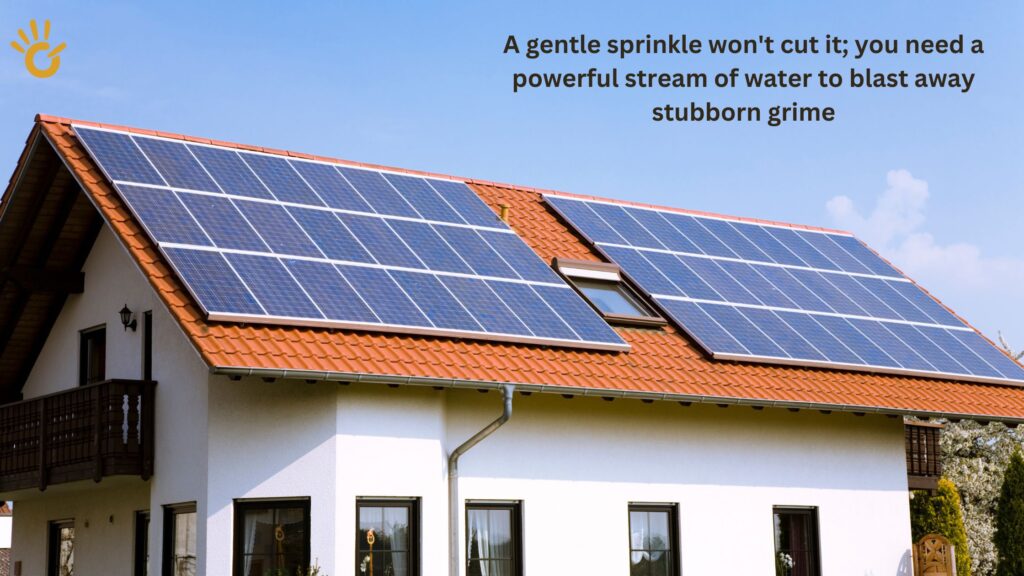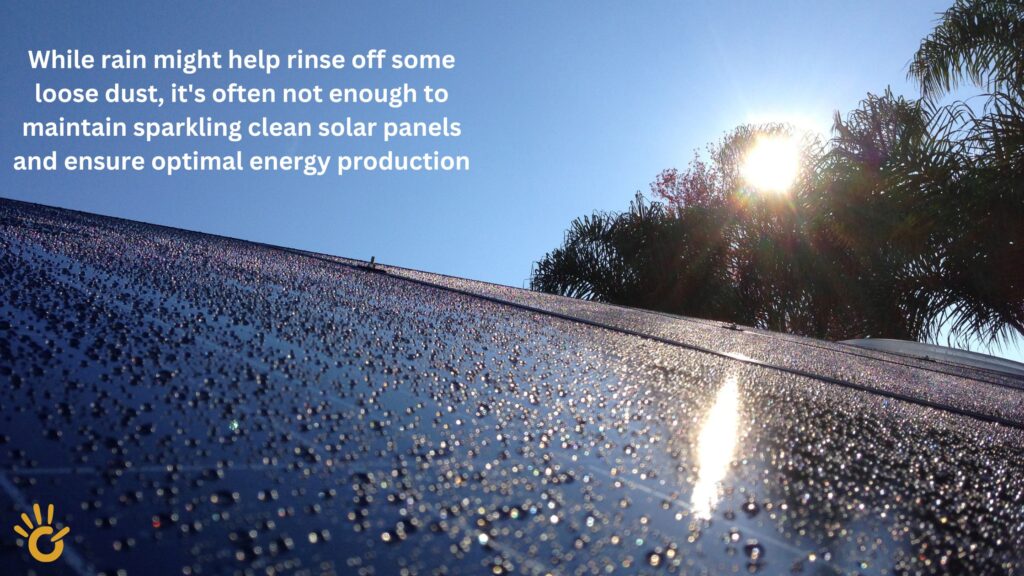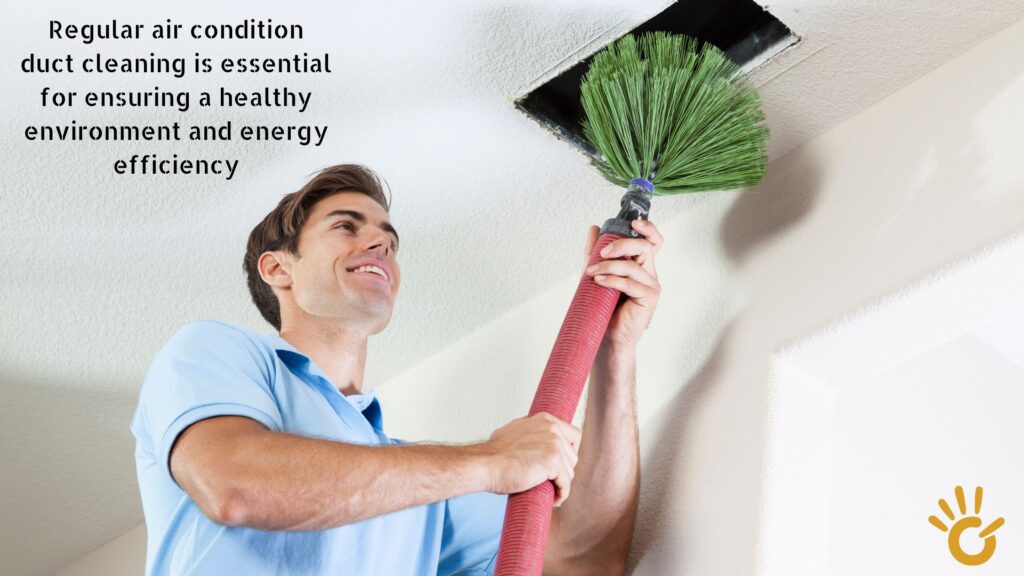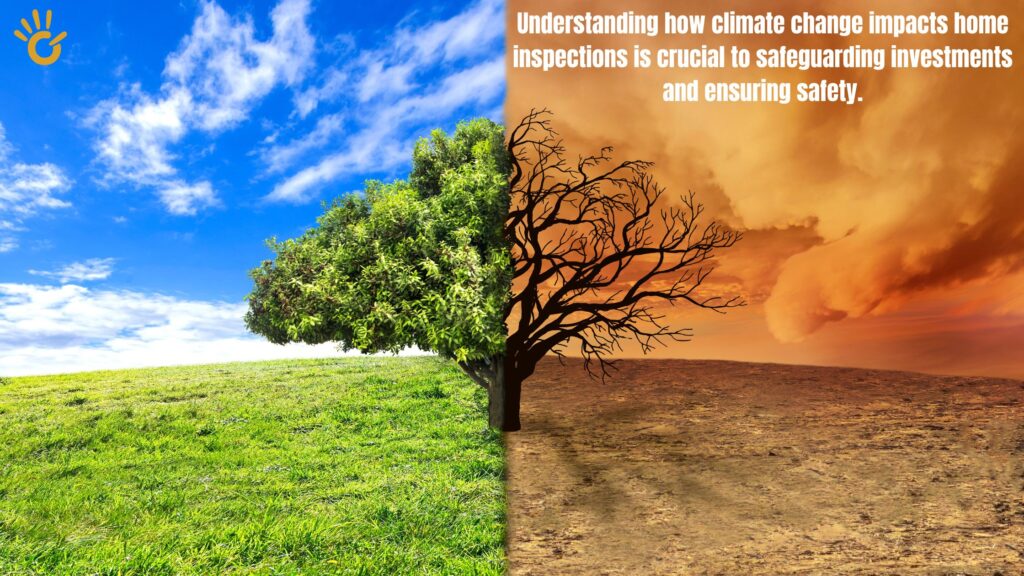As solar panels become increasingly popular, a common question arises: Can rain clean solar panels ? It’s tempting to think so. After all, rain washes away dirt from cars and sidewalks, right? Well, the answer is a bit more complicated than a simple yes or no. While rain might help rinse off some loose dust, it’s often not enough to maintain sparkling clean solar panels and ensure optimal energy production.
Does Rain REALLY Clean Solar Panels?
Rainwater Impurities: The Downside of Nature’s Shower
Imagine a raindrop falling through the air. It might pick up dust, pollen from trees like cypress and pine, or even pollutants from car exhaust or nearby industries. These impurities end up on your solar panels, leaving behind a residue that rain alone can’t always remove.
Lack of Force: A Gentle Rinse Isn’t Always Enough
Think about washing a really dirty car. A gentle sprinkle won’t cut it; you need a powerful stream of water to blast away stubborn grime. Similarly, rain often lacks the force needed to dislodge dirt that’s baked onto your solar panels, especially during hot, dry spells.
Environmental Debris: A Buffet for Your Panels
Solar panels, especially those on rooftops, become a landing pad for all sorts of debris. Dust, pollen, leaves, bird droppings – you name it, it probably ends up on your panels. Rain might wash away some of the lighter stuff, but it often leaves behind a stubborn layer of grime that can build up over time.
Impact on Efficiency: Dirty Panels Mean Less Power
Now, you might be thinking, “So what if my panels are a little dusty? Does it really make a difference?” Well, yes it does! Even a thin layer of grime can block sunlight from reaching the solar cells, reducing their ability to generate electricity. Think of it like wearing sunglasses – they reduce the amount of light that reaches your eyes. This decrease in efficiency can add up, meaning you’re not getting the most out of your solar investment.
Will Rain Damage My Solar Panels?
Don’t worry; rain itself won’t damage your solar panels. They’re designed to withstand various weather conditions, including rain, snow, and hail. However, if you’re concerned about potential damage from debris or hailstorms, consult with your solar panel installer or a professional maintenance company.
How Often Should I Clean My Solar Panels If It Rains Frequently?
If you live in an area with frequent rainfall, you might be lucky enough to get away with cleaning your panels less often. However, it’s still a good idea to periodically inspect them for dirt buildup. If you notice a significant layer of grime, even in a rainy climate, it’s worth giving them a clean.
How Much Does Rain Affect Solar Panel Efficiency?
The impact of rain on solar panel efficiency varies depending on several factors, including the amount of dirt buildup and the intensity of the rain. In some cases, even during periods of regular rainfall, dirt accumulation can reduce efficiency by a noticeable amount, potentially leading to lower energy production and smaller savings on your electricity bill.
What are the Best Ways to Clean Solar Panels After Rain?
DIY Cleaning: A Hands-On Approach
If you’re comfortable with heights and have the right equipment, you can clean your solar panels yourself. Here are a couple of common methods:
1. Pressure Washing: A pressure washer can be effective in removing stubborn dirt, but it’s essential to use caution. Too much pressure can damage the panels, so start with a low setting and work your way up if needed. Always consult your panel manufacturer’s guidelines for pressure washing recommendations.
2. Soft Brush and Soapy Water: For a gentler approach, use a soft-bristled brush or sponge with a mild soap solution. Avoid using abrasive cleaners or materials that could scratch the panels. Rinse thoroughly with clean water after cleaning.
Professional Cleaning Services: The Expert Touch
If you’re not comfortable cleaning your panels yourself or don’t have the time, consider hiring a professional cleaning service. They have the experience, equipment, and specialized cleaning solutions to ensure your panels are spotless and operating at peak efficiency.

Exploring Alternatives to Rain for Cleaning Solar Panels
Automated Cleaning Solutions: Technology to the Rescue
The world of solar panel cleaning is constantly evolving, and several innovative solutions are emerging that could make cleaning even easier:
1. Hydrophobic Coatings: These specialized coatings repel water, causing it to bead up and roll off the panels, taking dirt and debris along with it.
2. Robotic Cleaners: Similar to robotic vacuum cleaners for your home, these devices move across your solar panels, cleaning them automatically.
3. Windshield Wiper-Like Mechanisms: Just like the wipers on your car, these systems use blades or brushes to sweep dirt and debris off the panels.
These automated cleaning options can be a great way to minimize manual cleaning efforts and ensure your panels stay clean and efficient year-round.
Keeping Your Solar Panels Clean for Maximum Efficiency
While rain might seem like the obvious answer to keeping your solar panels clean, it’s often not enough to maintain peak performance. Regular cleaning, whether you do it yourself or hire a professional, is essential for ensuring your panels capture the maximum amount of sunlight and generate the most electricity possible.
Consider your location, environmental factors like pollen and dust, and your personal comfort level when deciding on the best cleaning approach for your solar panels.
Frequently Asked Questions
Is rain enough to clean solar panels?
- Rain provides some basic cleaning, but it’s not a comprehensive solution for solar panel maintenance.
- Rainwater often contains dust, pollen, and mineral deposits that can leave residue on panel surfaces.
- While rain can help wash away loose debris, it doesn’t effectively remove stubborn dirt, bird droppings, or hard water stains.
- In areas with light rainfall or dusty environments, rain alone is insufficient to maintain optimal solar panel performance.
- Regular professional cleaning or careful manual cleaning is recommended to ensure maximum energy efficiency.
Can solar panels be damaged by rain?
- Solar panels are designed to withstand rain and are highly water-resistant.
- Modern panels undergo rigorous waterproofing tests to ensure durability during various weather conditions.
- Proper installation with correct sealing prevents water from penetrating electrical components.
- While rain itself doesn’t damage panels, potential risks include water-carried debris, mineral deposits, and potential corrosion if panels are not maintained.
- High-quality panels have protective coatings that resist water-related degradation.
- Extreme weather with heavy hail or storms might cause physical damage, but standard rainfall poses minimal risk.
What is the best way to clean solar panels?
- The most effective method involves using soft, non-abrasive materials like microfiber cloths or soft brushes.
- Use purified or deionized water to prevent mineral deposit formation.
- Avoid harsh chemicals, abrasive cleaners, or high-pressure washers that could scratch panel surfaces.
- Early morning or late afternoon are ideal cleaning times to prevent rapid water evaporation.
- For hard-to-remove grime, use mild, solar panel-specific cleaning solutions recommended by manufacturers.
- Consider hiring professional solar panel cleaning services for thorough, safe maintenance.
- Always follow manufacturer guidelines for specific cleaning instructions.
Do solar panels work better when wet?
- Contrary to some beliefs, solar panels do not perform better when wet.
- Water droplets can temporarily reduce panel efficiency by scattering and blocking sunlight.
- While panels are designed to function in various weather conditions, moisture can slightly decrease electrical output.
- Clean, dry panels generally generate more electricity compared to wet panels.
- Some studies suggest a minimal cooling effect from water might marginally improve panel performance.
- Overall, dry, clean panels with unobstructed sunlight exposure provide optimal energy generation.
Can I spray my solar panels with water?
- Spraying panels with water can be done, but extreme caution is necessary.
- Use a low-pressure garden hose or specialized soft spray nozzle to avoid damaging panel surfaces.
- Ensure water temperature is moderate to prevent thermal shock.
- Avoid spraying during peak sunlight hours to prevent rapid evaporation and potential mineral deposits.
- Do not use tap water with high mineral content; filtered or deionized water is preferable.
- Always check manufacturer recommendations before implementing any cleaning method.
- For extensive cleaning, professional services are recommended.
What is the best time to clean solar panels?
- Early morning or late afternoon are optimal cleaning times.
- These periods offer cooler temperatures, preventing rapid water evaporation and potential water spot formation.
- Avoid midday sun, which can cause rapid drying and leave mineral residues.
- Choose overcast days to prevent quick water evaporation and potential surface damage.
- Consider seasonal variations and local climate when planning cleaning schedules.
- In dusty or polluted areas, more frequent cleaning might be necessary.
- Aim to clean panels every 6-12 months, depending on environmental conditions.




Pingback: Solar Panel Maintenance in Dubai in 2024
Pingback: Solar Panel Cleaning in the UAE
Pingback: UAE home protection Protecting Your Home's 1 Line of Defense